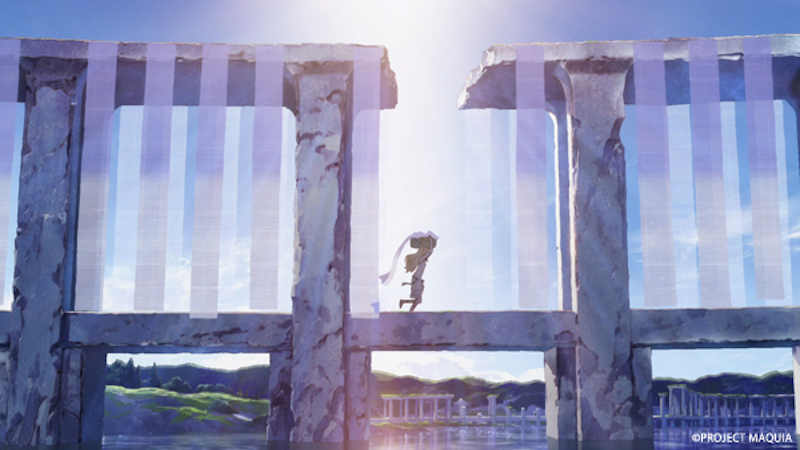Director – Mari Okada – 2018 – Japan – Cert. 15 – 115m
***
Like a virgin. A refugee girl from an immortal race adopts an orphaned human baby to raise as her own until he leaves her as an adult – plays in the Anime season April / May 2022 at BFI Southbank
The Iolph are the Clan Of The Separate: they live for hundreds of years but remain in their isolated enclave cut off from the rest of humanity. They weave fabric called the Hibiol on looms; the Hibiol contains within it the storylines of their lives which the Iolph can feel and read.
Maquia and Leilia are friends. Leilia is the tomboy, getting into trouble. One day, Mezarte riders on dragons called the Renato attack and decimate the Iolph colony. Leilia is taken prisoner to be married off to the invading Mezarte prince while Maquia escapes on a Renato which goes beserk infected with the disease Red Eye, literally crashing and burning in a forest miles from home. She takes refuge in a village which has similarly been attacked and finds a baby which she prises free from the rigor mortis grip of its mother’s corpse and names the boy Erial.
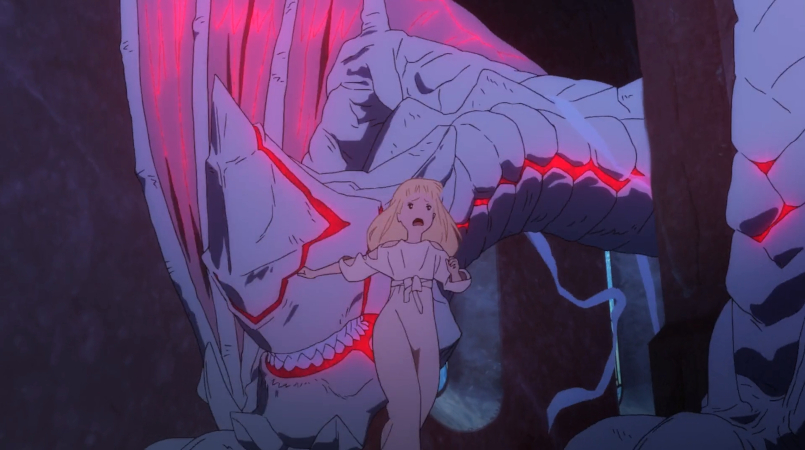
Maquia’s subsequent life as a refugee – or at least that part of it covered here – is defined by her struggle to be a surrogate mother for the boy as they move from place to place, several years in a farmhouse where a kindly widow takes the in, more years in a big Mezarte city where she works as a tavern waitress. But as Erial grows in the normal human timespan from baby to boy to young man to fatherhood and finally old age and death, because she belongs to a race with a much longer life span, Maquia barely alters in appearance.
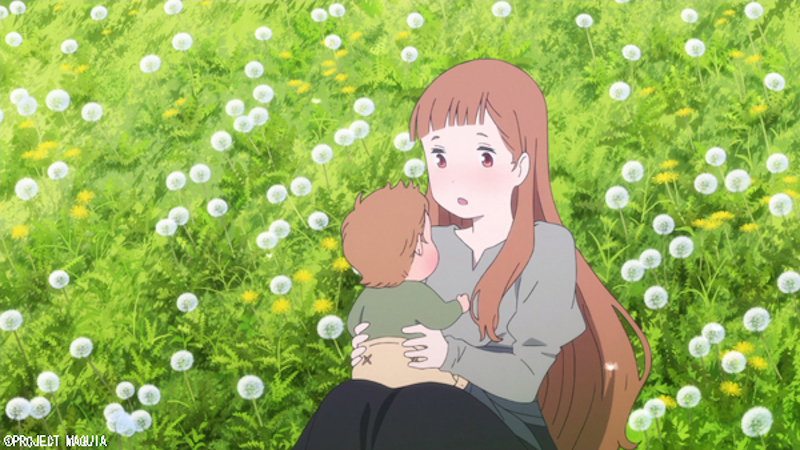
It’s a pretty weird set up: this is motherhood without sex. Someone else got to do that and all the dirty business of making a baby, Maquia just gets to raise the child then see him leave her as an adult and form his own relationship with a woman to produce his own offspring. Other characters drift in and out of her life with increasing rapidity as the narrative progresses and kingdoms rise and fall, but she becomes obsessed with whether or not she managed to be a good mother, or whether she was even one at all. Which gets a bit wearisome after a while.
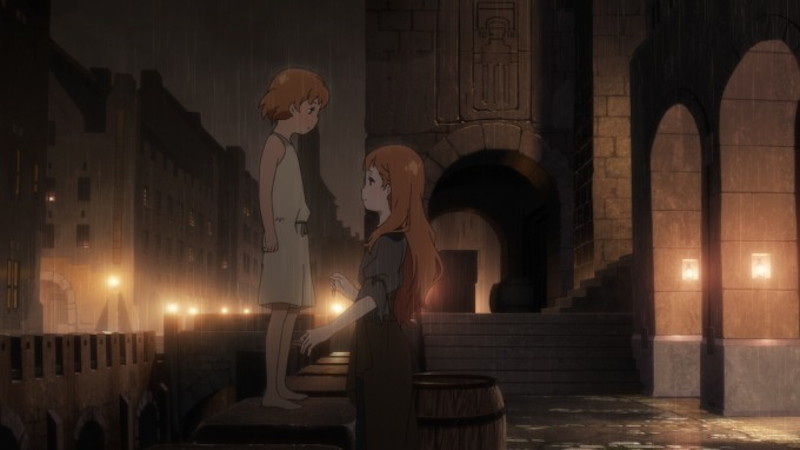
By the time Mezarte’s city is under attack and the adult Erial is a one of the soldiers attempting to fight off the enemy, the film is cutting from lavish and impressive sword-bashing episodes to scenes of Maquia helping Erial’s partner to give birth. This is clearly not aimed at a male audience. Which is fine of itself, but didn’t endear the film to me.
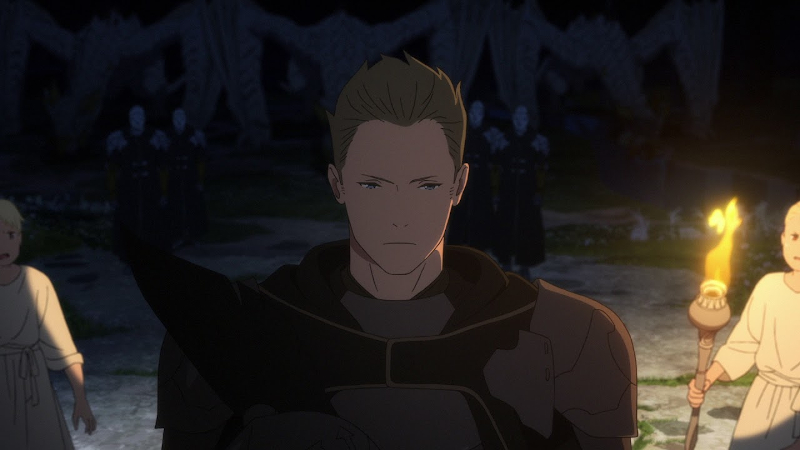
On the design side, there are impressive environments. The Iolph’s enclave seen at the beginning is stunning, with towering buildings that look like they were made of ice. These are in marked contrast to the huge, industrial age city of smoking chimneys and huge waterwheels in which our two refugees settle later on. The impact of such dazzling visuals is undercut by the art department’s pick and mix approach with streets of Georgian architecture jostling with factory buildings from a later era filled with people wearing clothes modelled on the sixteenth century. When ships attack from the sea, they feel like Spanish galleons from a much earlier time.
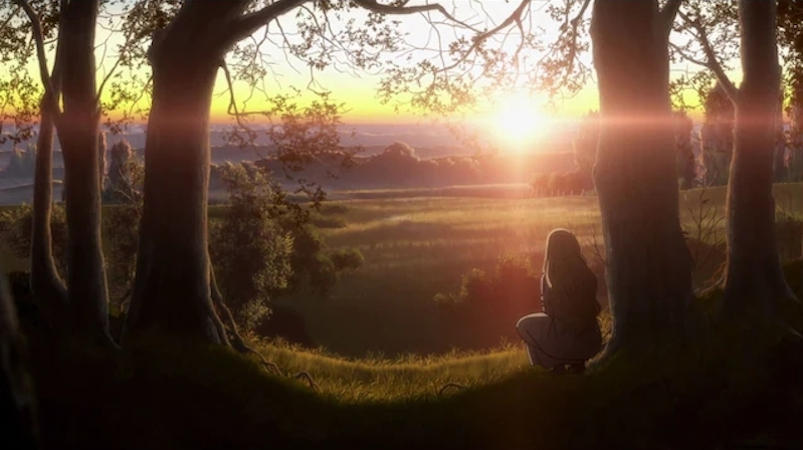
It’s gorgeous as eye candy, but as a unified visual whole it doesn’t make much sense. The dragon-like Renato prove to be the weakest link, an element dashed off by a director uninterested in making them convincing.
The unashamedly feminine, central character is so self-obsessed that this male writer had difficulty finding sympathy for her. Which undermined everything else.
Maquia: When the Promised Flower Blooms plays in the Anime season April / May 2022 at BFI Southbank.
Trailer:
Original UK Cinema release: Wednesday, June 27th 2018.
